The Marijuana Dispatch
Small nuggets of interesting cannabis news.
-
Colorado to crack down on medical marijuana patients and caregivers – The Denver Post ✭
Colorado has about 3,300 medical marijuana caregivers, and only 24 of them are registered to more than five patients. One caregiver serves 82 patients.
via Colorado to crack down on medical marijuana patients and caregivers – The Denver Post.
-
Medical Marijuana Rule Change Means Expansion For B.C. Business ✭
- [CBC news] writes:
A Vancouver business connects people seeking medical marijuana with doctors willing to prescribe cannabis is expanding. They currently charge about $300-400 for guidance and help filling out the paperwork.
Roycroft says more than 2,000 people have come to the clinic since he opened several years ago. “We do Skype appointments for people in other provinces,” he says. “This is a consultation with our doctor in British Columbia, so we’re able to help people right across the country.”
Is Medical Marijuana As Helpful As We Think?
So we know marijuana blocks deposits in the brain that cause Alzheimer’s. But that’s just one of many helpful properties. And it’s still illegal.Marijuana was made illegal in all 50 states by the mid 1930′s. In a recent poll, over 60% of Americans said they would be in favor of legalizing marijuana. Not only is it less dangerous than alcohol, but it helps treat over 300 medical conditions. Read on to see how it can be beneficial. Please note that we do not condone the use of illegal drugs.
Source -
Regulations for Medical Marijuana in Canada are Steep ✭
- Written by Mark Gollom for CBC News:
Commercializing that has been the hurdle,” says Mark Gobuty, CEO of The Peace Naturals Project, one of the dozen producers licensed to sell medical marijuana in Canada. “Having an industry that wasn’t regulated, where you didn’t have the 8-5 shift and seven days a week operation, absolute reporting, cameras everywhere — it’s counterculture to cannabis.” “Like anything else there’s an evolution because you’re working with a regulator who truly isn’t intimate with cannabis and they’ve been ordered to provide safe access.”
Under the “Marijuana for Medical Purposes Regulations”, producers must comply with new rules and enforcements similar to other controlled substances. Licensed marijuana growers must meet strict security, control and reporting requirements. And inspections are regular occurrences. In America, we have the Cannabis Cup, and if you are a special grower, this is where you want to get noticed!How do you determine quality? Purity, safety and efficacy.
If the cannabis falls short, producers have various techniques to bring the plants back to a healthy state. Like gamma radiation, for example, which can get rid of fungus or bacteria. But then plants have to be re-submitted for approval, a somewhat tedious process.“You have to safely produce cannabis within a safe working environment within a repeatable procedure and be able to have the wherewithal and credentials and polices and protocols to have everything tested validated and safe,” Gobuty said. “The guidelines say you can have zero detection of mould, bacteria or fungus,” Gobuty said. But the process is a continual learning curve. When Gobuty first began, it took them four days just to fill out all the reports required, he said.
In the US, we have places like Oaksterdam University to help steer education and growing so everyone is using similar techniques and growing quality cannabis. -
10 Marijuana Myths Exposed as High Times Does Homework ✭
“Productivity will suffer!”
Fifty-five percent of people who have never smoked marijuana work full or part time. But 70.6 percent of people who have smoked pot are working. Even monthly pot smokers are more likely to be employed (64.4 percent) than people who didn’t smoke pot this month (61.7 percent).
Yes, there are facts about marijuana, myths, scientific evidence in paperback, on the web, LA has something to say about it, so does North Dakota, and elsewhere, but all these myths share many similar bullet points. The myths are easily refuted with facts and data; we have a lot more science today than the 80s. And people know the drug war is a losing battle, so popular opinion has shifted over the last 30 years.-
These Neurologists Report Medical Marijuana Eases Some MS Symptoms ✭
- Monte Morin for latimes.com writes:
There is strong evidence that medical marijuana pills may reduce symptoms of spasticity and pain reported by multiple sclerosis patients, but little proof that smoking pot offers the same benefit, according to new alternative treatment guidelines released by the American Academy of Neurology. The research study was published Monday in the journal and are among the first from a national medical organization to suggest that doctors might offer cannabis treatment to patients.
Patient surveys suggest that up to 80% of MS patients employ some form of alternative treatment, including the smoking marijuana. Yadav said that very few high-quality studies have examined the effectiveness of these treatments, and there was simply too little evidence to support or refute their effectiveness.Clinicians might offer oral cannabis extract for spasticity symptoms and pain, spasticity symptoms and pain (like central neuropathic pain) and even long-term pain and spasms.
I was surprised to learn they advise magnetic therapy is effective for fatigue and but ineffective for depression. Also fish oil is probably ineffective for relapses, disability, fatigue, MRI lesions, and quality of life ; ginkgo biloba is ineffective for cognition but and possibly effective for fatigue! Interesting and unexpected results for me. -
Medical Marijuana: From Poison to Popular in Politics ✭
- thinkprogress.org writes:
More than 40 years ago, psychiatry professor Lester Grinspoon wrote a groundbreaking book on marijuana that the New York Times dubbed at the time “the best dope on pot.” Like many in the medical marijuana community, Grinspoon started out as a skeptic intent on researching marijuana’s harms. But his perspective shifted after a personal experience: He had a son with leukemia who found relief only after he started using marijuana before his chemotherapy treatments. Once he started researching marijuana, Grinspoon found that existing information about marijuana was based on propaganda rather than rigorous scientific study. “I came to realize that I was the one who was misinformed — that despite my training in science and medicine, I had been brainwashed like just about every other citizen of this country.”
 Mr. Grinspoon is 85 years old and has lived through the failed American War on Drugs nonsense. Now medical marijuana is in the national spotlight and in daily conversations because now we have much better science and data about the facts and health benefits of medical cannabis.
Mr. Grinspoon is 85 years old and has lived through the failed American War on Drugs nonsense. Now medical marijuana is in the national spotlight and in daily conversations because now we have much better science and data about the facts and health benefits of medical cannabis.
“Medicinally I think that folks are beginning to see if there are things which the medical community can help on and has specific ways that they can then I think the legislature might consider that but to move beyond that I would say is a bridge too far but that bridge has not yet been built.”
I feel, at the age of almost 64 years old, that what I’m doing about medical marijuana in my life is probably, and forgive me I loved raising my four sons… this might be the most important thing I’ve ever been involved in in my life. -Ellen Lenox-Smith, Rhode Island
I was curious about Ellen, so I found this other article about this inside look at Rhode Island’s first medical marijuana dispensary:Ellen is in so much pain she can’t climb the stairs, so she uses a motorized chair to get to the basement where she grows her marijuana. “It’s the only thing I have,” said Smith, “This is it. We wouldn’t be having this conversation. I wouldn’t be alive. I mean, I don’t have anything else to turn to.”
Ellen has lung problems, but thankfully we know the science behind cannabis not linked with lung damage and cannabis vs tobacco smoke doesn’t even compare. I will say, Thomas Slater who runs the Compassion Center in Providence is doing great work keeping this place running for patients. We appreciate what they are doing to help people. -
Study: Legalizing Marijuana May Reduce Crime ✭
- Matt Ferner for huffingtonpost.com writes:
“After controlling for a host of known factors related to changes in crime rates — we accounted for factors such as poverty, employment, education, even per capita beer sales, among other things — we found no evidence of increases in any of these crimes for states after legalizing marijuana for medical use,” Morris said. “In fact, for some forms of violence — homicide and assault — we found partial support for declines after the passing of this legislation.” Data for the study came from state websites, FBI Uniform Crime Reports, the census, The Bureau of Labor Statistics, The Bureau of Economic Analysis and the Beer Institute.
I like how they reference this other study in the journal of Addictive Behaviors noted that “alcohol is clearly the drug with the most evidence to support a direct intoxication-violence relationship,” and that “cannabis reduces likelihood of violence during intoxication.” The National Academy of Sciences found that in chronic marijuana users, THC — the active ingredient in pot — actually causes a decrease in “aggressive and violent behavior.” -
Surveys yet to link medical marijuana and teen drug abuse ✭
- Stephen Nohlgren for tampabay.com writes:
Some evidence is mounting that heavy pot use among young teens can cause permanent emotional and physical damage. But surveys of teen pot use, however, tend to dispel the theory. The research is complicated, but so far, the numbers are reassuring. Pot use among teenagers has barely changed since 1996, when California broke the medical marijuana ice and became the first state to legalize its use.
Ultimately this is a good article that says kids choose intoxicants for many reasons that have little to do with adult laws, so medical marijuana isn’t likely going to boost our adolescent pot use in states like Florida where it’s looking very good to be legal this November. And then we have research saying that legalization doesn’t lead to more crime. -
Small Mining Companies Looking For Big Profits In Medical Marijuana ✭
- Jordan Chittley for ctvnews.ca writes:
Supreme Pharmaceuticals is in the process of purchasing a company in B.C. that is working on getting a licence to sell medical marijuana and Satori announced they have hired an advisor for the agri-mining and agri-pharmaceutical sectors. Boyle laughs when I call him a weed expert. Scott Walters isn’t an expert is smoking or rolling it. He’s a Bay Street veteran with more than 20 years of experience. In 2001, he started a hedge fund.
Nitin Mehra of Canadian Alternative Health agrees with the College of Family Physicians saying, “I would argue they are putting them (doctors) in a difficult position” because the doctors now need to recommend dosage and take on more responsibility. Some users fear this will make doctors less likely to write prescriptions, but Mehra disagrees. Doctors he talks to are just racing to learn because this isn’t something they are taught in medical school. “The onus is now on the patient to inform the doctor.” So prices will probably go up and rise because the government is trying to standards to the industry so they can keep quality high and consistent. The government argues that changing policy is because people growing it at home risk mould, fire, toxic chemicals and security issues and this is a problem they’re trying to address. The facilities the licensed providers have to build aren’t cheap. If you grow it at home or buy it from small producers can buy it for about $1 per gram. When buying from licensed producers that goes up to $6-10 per gram and rightly some people are pretty upset, but with the number of prescriptions expected to jump 600% in 10 years there’s lot of money to be made. -
Possible Vote On Minn. Medical Marijuana Delayed ✭
- minnesota.cbslocal.com writes:
Republican Rep. Pat Garofalo of Farmington was hoping to attach an amendment that would legalize medical marijuana to a separate health bill. But that bill has been pulled from Wednesday’s docket until after the Legislature’s Passover/Easter break that begins the next day.
Garofalo’s amendment calls for a broader medical marijuana law than Gov. Mark Dayton has said he is willing to back. Dayton didn’t issue a veto threat Tuesday but said legislators “have hidden behind their desks” while he strained to bridge concerns of advocates and law enforcement.
But there are issues, like the bill currently doesn’t allow people to grow their own marijuana and penalizes smoking, even for medical reasons. That’s pretty limiting for a lot of patients who need to keep costs to a minimum and want to know exactly what strain they’re getting so they can target specific medical needs like pain, depression, nausea, vomiting, etc.
Heather Azzi, the director for Minnesotans for Compassionate Care, a group that supports legalization, says it might be a good thing that the vote is delayed. “It’s important that we take more time with it,” she said. “We know that we need the governor’s signature to get a medical marijuana bill enacted in Minnesota.”
-
Cali Medical Marijuana Gets a Kick in the Pants—and it’s a Good Thing ✭
- Carly Schwartz writes for the Huffington Post:
California became the first state to legalize marijuana for medicinal purposes when voters passed the landmark Proposition 215 in 1996. But since then, the state has failed to establish uniform regulations to govern the industry, leaving the implementation of a vague medical cannabis law to local municipalities instead.
Some cities, like Oakland and San Francisco, have enacted clear-cut rules that dictate where dispensaries can operate and levy fees that generate revenue for local government. Other places, like Los Angeles and San Diego, remain largely unregulated, with very little control over the number of dispensaries or the criteria for doctor recommendations.
Since marijuana remains illegal at the federal level, the lack of a statewide standard has left California vulnerable to crackdowns.
So California is looking to tighten their regulations so the legal side of medical marijuana is clear and more cut and dry. That makes good sense, seemingly.
Recent polls have suggested a majority of Californians support legalizing marijuana for recreational purposes. A national drug reform coalition, backed by Lieutenant Gov. Gavin Newsom, plans to put a legalization initiative on the state’s 2016 ballot.
In the meantime, advocates believe strict statewide rules are a necessary next step. “We need to show that California has the ability to regulate marijuana,” Angell said. “This would help further demonstrate how tax revenue can be generated and put into needed programs.”
-
Billionaire George Soros is paying cash to legalize marijuana ✭
- Kelly Riddell at the Washington Times writes:
Through a network of nonprofit groups, Mr. Soros has spent at least $80 million on the legalization effort since 1994, when he diverted a portion of his foundation’s funds to organizations exploring alternative drug policies, according to tax filings.
His spending has been supplemented by Peter B. Lewis, the late chairman of Progressive Insurance Co. and an unabashed pot smoker who channeled more than $40 million to influence local debates, according to the National Organization for the Reform of Marijuana Laws. The two billionaires’ funding has been unmatched by anyone on the other side of the debate.
-
Second medical marijuana school coming to Orlando – Orlando Business Journal ✭
- This Jacksonville-based company is now offering courses on medical marijuana, right now! Focused on the business of medical marijuana, these one-day courses cost $299 and are held in hotels. Most events are sold out through April.
This looks like an interesting move in Florida. Businesses are already getting started, anticipating success in the medical cannabis program this November at the polls.Medical marijuana is, potentially, a $785 million industry in Florida if voters legalize it in November. More medical marijuana companies in Central Florida can help spur demand for services and real estate.
Carr said the plan right now is on the education side, but the eventual plans are to get into the dispensary side of medical marijuana as well.
-
Is Oregon going backwards with new dispensary rules for medical marijuana? ✭
- Chad Garland writes for the Associated Press:
Walk into any dispensary in Oregon right now and you can buy medicines priced at $140 to $290 an ounce, depending on the strain. Until now, medical pot shops have operated in a legal gray area throughout the state. Dispensaries couldn’t charge money for cannabis, and growers could be reimbursed only for the costs of supplies and utilities, not labor or other expenses when they might really need that extra money.
Customers can’t simply show a medical marijuana card to get in anymore. Now they also have to provide a photo ID before being buzzed through a locked door to an inner sanctum where the marijuana is kept. Security cameras record each transaction. Customer purchases are entered into store computers, accounting for every gram entering and leaving the facility. One reason for all this is to keep Oregon medical pot from being sold on the black market.
There seems to be some debate if these new changes are saying that dispensaries are basically for-profit now, but we’ll have to wait and see how it all turns out in the coming months to make that call. -
Maryland General Assembly revises medical marijuana law to ease patient access to drug – The Washington Post ✭
- Fredrick Kunkle writes for the Washington Post:
This new law would allow certified physicians to help patients obtain medicinal marijuana through a state-approved distribution network of dispensaries.
I would love to see Maryland lead the way in outlining laws and a framework for doctors and dispensaries to operate inside.Under the law enacted last year, responsibility for administering the medical marijuana program was given to academic medical centers, but none was willing to participate.
Under the compromise that passed Monday, the state’s existing marijuana commission would certify physicians with the ability to recommend that their patients receive the drug. Those patients would then obtain ID cards from the commission that would allow them to obtain the drug from a network of state-licensed growers and dispensaries.
Categories
✓ Highly Recommended
You’ll be happy with any of these reliable vaporizers:
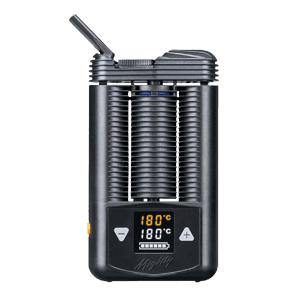
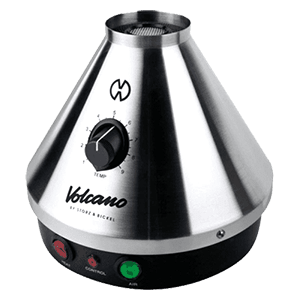
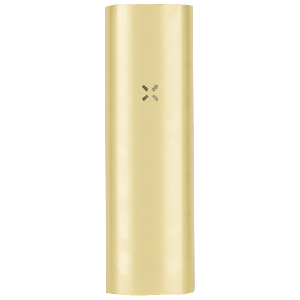
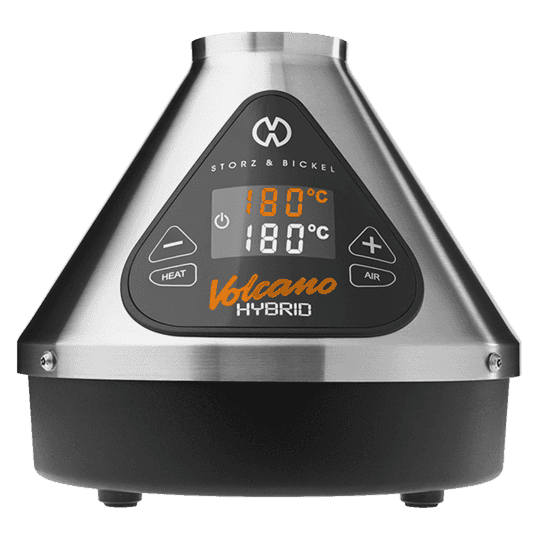
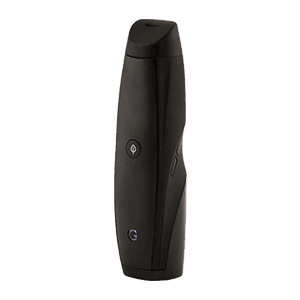

 Guide to Vaporizing
Guide to Vaporizing Weed Calculator
Weed Calculator